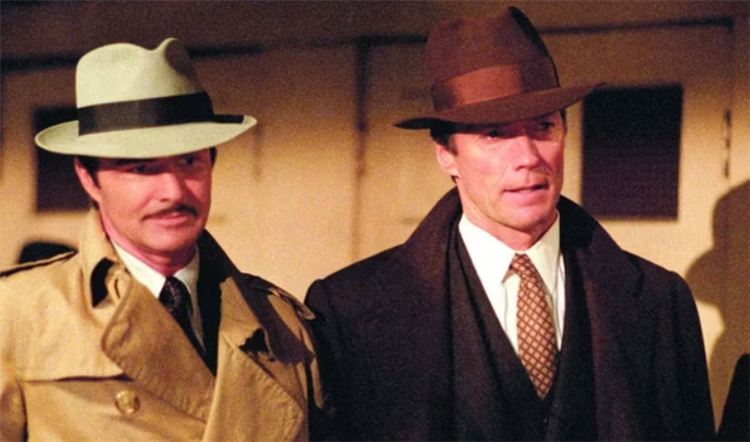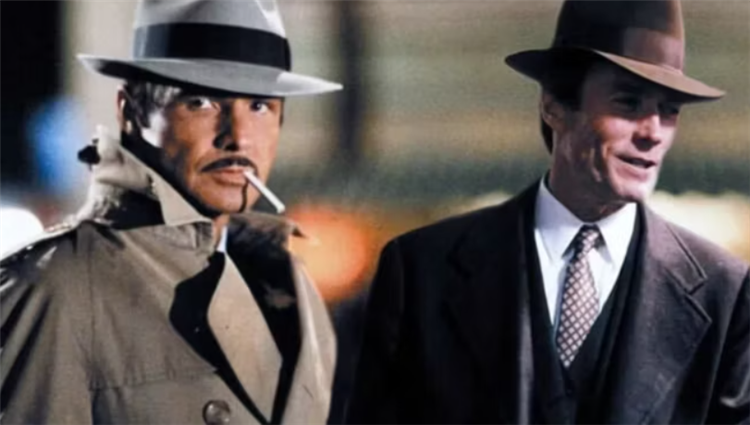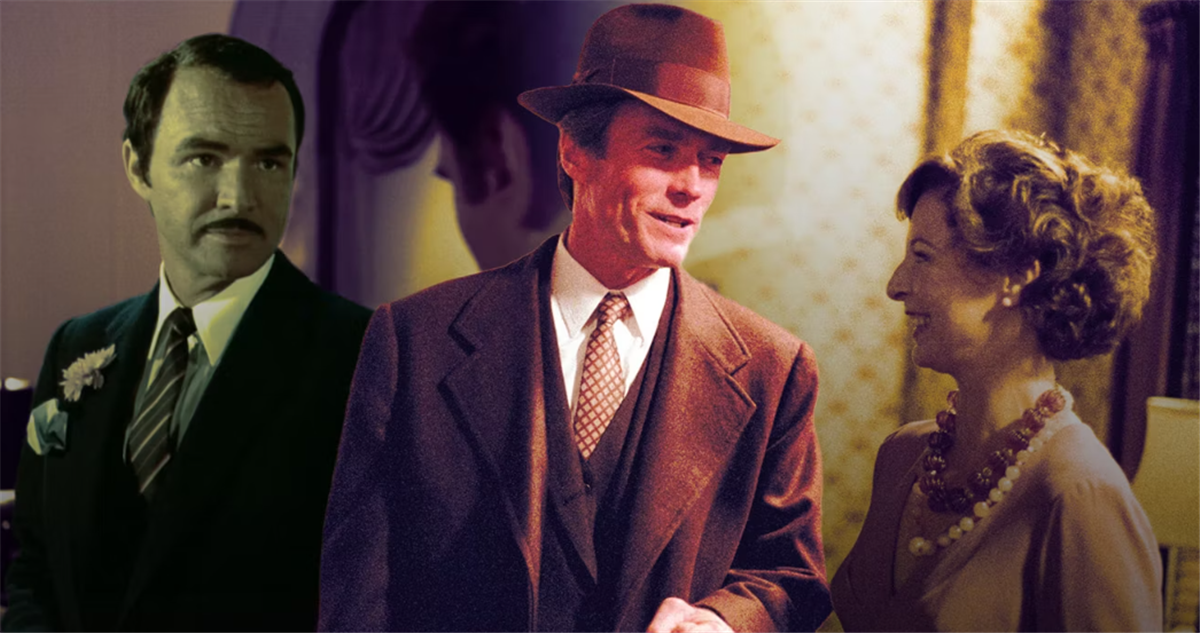The friendship between Clint Eastwood and Burt Reynolds began in 1959, when the pair, both of whom were Universal Pictures contract players, were simultaneously fired by Universal. As Reynolds fondly recounted throughout the rest of his career, he was fired because of his acting, while Eastwood was let go because Universal objected to his chipped tooth and large Adam’s apple.
After achieving film stardom, Eastwood with the Dollar Trilogy Western film series, and Reynolds with the 1972 thriller Deliverance, they maintained a casual friendship and friendly rivalry. When Reynolds scored a blockbuster hit with the 1977 action comedy film Smokey and the Bandit, Eastwood followed suit with the blue-collar 1978 action comedy film Every Which Way but Loose, which became his first film to gross over $100 million at the domestic box office.
Inversely, the success of Eastwood’s Dirty Harry film series inspired Reynolds, who was approximately six years younger, to direct and star in the gritty 1981 action thriller film Sharky’s Machine, which he playfully referred to as Dirty Harry Goes to Atlanta. After discussing the possibility of working together for several years, they finally got together with the 1984 prohibition-era crime-comedy film City Heat. However, while this seemingly commercially appealing star pairing was supposed to guarantee success, City Heat instead heralded the end of Reynolds’ box-office star period and marked a seismic shift in the Hollywood power structure.
City Heat Was Expected to Be a Blockbuster Hit

The filming of City Heat commenced in the spring of 1984 when the annual poll of theater owners declared Clint Eastwood the number one box-office star for 1983. The poll result brought an end to the record-breaking five-year winning streak of City Heat co-star Burt Reynolds, who finished fourth in the 1983 poll. Moreover, the actor entered City Heat after experiencing consecutive box-office disappointments with the 1983 films The Man Who Loved Women and Stroker Ace.
Regardless, distributor Warner Bros. was convinced that the pairing of the beloved actors would result in a surefire box-office hit amid the 1984 holiday box-office season, especially since the screenplay for City Heat was expressly tailored for both of their distinctive screen personas.
In City Heat, Eastwood plays Lieutenant Speer, a police lieutenant in 1933 Kansas City, where Reynolds’ character, Mike Murphy, Speer’s former friend and partner, is a private investigator. In the film’s opening scene, Murphy is harassed by two thugs after entering a diner where Speer is attempting to drink a cup of coffee. After a thug spills some of Speer’s coffee, an irate Speer assists Murphy in knocking the thugs senseless. Murphy and Speer later join forces after Murphy’s partner is murdered over stolen underworld financial records.
City Heat had a troubled production history. The script for the film, originally titled Kansas City Jazz, was written by Blake Edwards, who directed Reynolds in The Man Who Loved Women and intended to direct City Heat. However, after creative differences with Eastwood, Edwards was fired and summarily replaced with Richard Benjamin. Edwards expressed his feelings about the situation by having himself credited in City Heat with the pseudonym Sam O. Brown, a reference to S.O.B., Edwards’ satirical 1981 black comedy film.
Burt Reynolds Was Seriously Injured on the First Day of Filming

The best scene in City Heat is the film’s opening scene, which was also the first to be filmed. Crisp, energetic, and punctuated by sharp, witty banter between stars Clint Eastwood and Burt Reynolds, the scene suggested to the film’s cast and crew that the movie was headed in the right direction.
However, the filming of the opening scene was marred by the fact that Reynolds’ jaw was broken after a stuntman mistakenly struck his jaw with a steel chair instead of the balsa chair that was supposed to be wielded for the scene. The resulting injury caused debilitating pain and a severe inner ear infection, and his weight subsequently plunged by approximately 30 pounds. Reynolds, who was forced to endure a liquid diet, became increasingly dependent on painkillers to get through the filming.
This fateful accident forever altered his career, which went into a steep decline, as Reynolds’ frail appearance led to false rumors that he had AIDS. Following City Heat, the actor didn’t work again for approximately two years. Moreover, he never came close to regaining his former star status throughout the rest of the 1980s, which ended with Reynolds having moved back to television, where Eastwood and Reynolds started.
City Heat Was a Box-Office Disappointment
City Heat was released amid the 1984 holiday box-office season alongside the hit buddy cop action comedy film Beverly Hills Cop, which became the highest-grossing film released in 1984 with a domestic gross of nearly $235 million. In its opening weekend of release, City Heat finished third with a gross of approximately $6.3 million compared to the $15.2 million for Beverly Hills Cop.
City Heat, which carried a production cost of $25 million, finished its theatrical run with a gross of approximately $38.3 million. Eastwood’s previous film, the 1984 crime thriller Tightrope, grossed roughly $48.1 million domestically, while Reynolds’ previous film, Cannonball Run II, grossed approximately $28 million. Eastwood was voted the number one box-office star by theater owners in the 1984 poll, in which Reynolds finished sixth. Reynolds never finished in the top 10 again.
While City Heat was hardly a financial disaster, the film certainly fell way short of being the blockbuster hit that all parties involved expected. Indeed, the movie represents a prime example of Hollywood’s shifting definition of disappointment, which is often more reflective of a failure to match inflated expectations than a failure to make money. City Heat is available to rent on Prime Video, iTunes, YouTube, Google Play, and Fandango.
